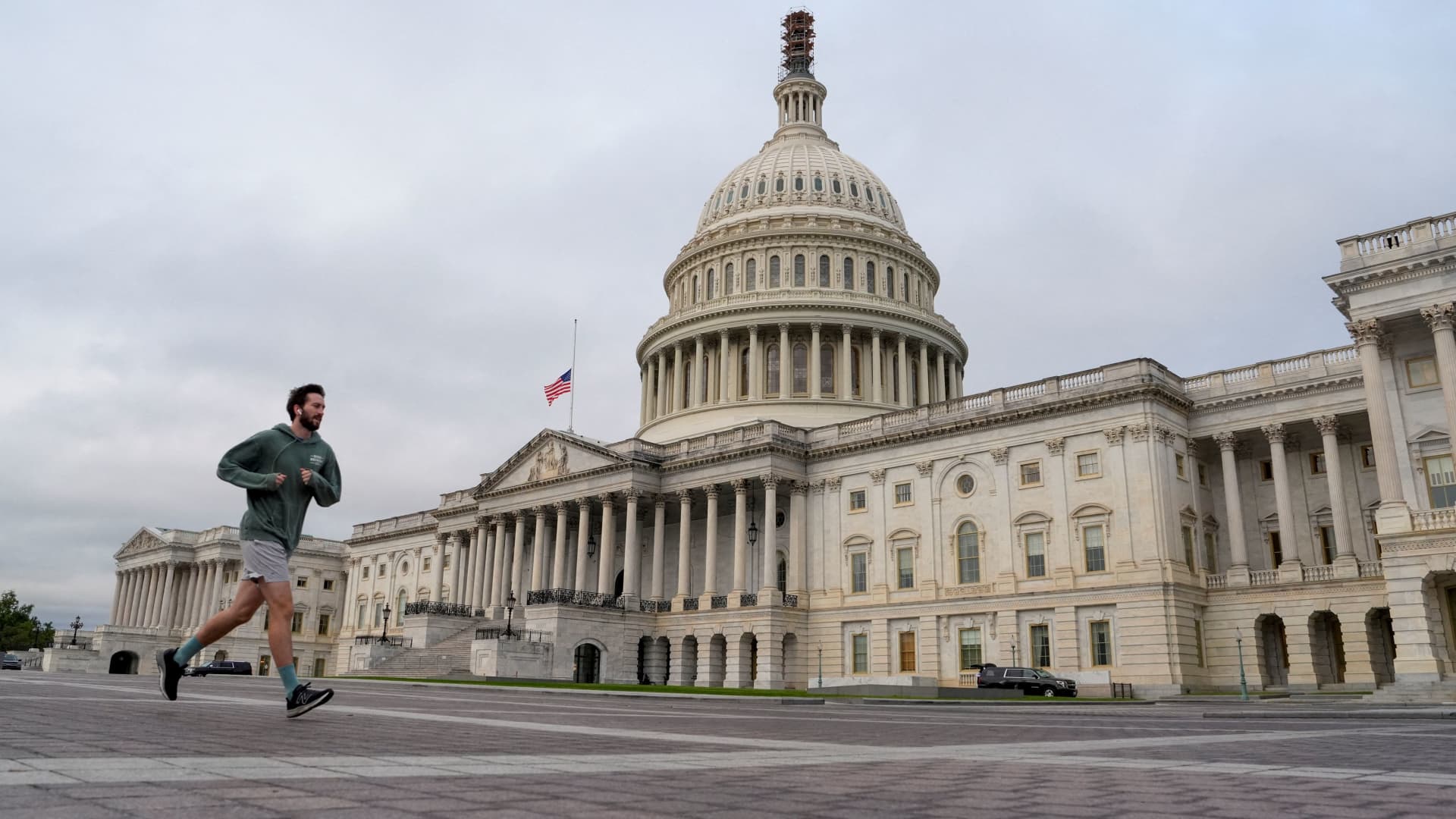A jogger runs by the U.S. Capitol as the deadline to avert a partial government shutdown approaches at the end of the day on Capitol Hill in Washington, U.S., September 30, 2023.
Ken Cedeno | Reuters
Congressional leaders announced a $1.59 trillion deal on top line spending Sunday as the government races to avoid a potential shutdown.
The deal establishes an overall spending budget of $1.59 billion for the 2024 fiscal year, allocating $886 billion to military spending and $704 billion for non-defense spending, said House Speaker Mike Johnson in a Sunday note.
“The agreement today achieves key modifications to the June framework that will secure more than $16 billion in additional spending cuts to offset the discretionary spending levels,” he wrote.
The deal comes as the House and Senate inch closer to a key Jan.19 deadline, when funding runs out for many federal agencies. Funding for the rest of the government expires on Feb. 2.
While the deal paves the way for a potential funding decision, and signals that both Johnson and Senate Majority Leader Chuck Schumer are working in unison, a shutdown isn’t out of the question as parties continue to clash over key policy issues.
Johnson acknowledged that the spending levels would “not satisfy” all parties, or cut as much as many had hoped for, but offers a way to “move the process forward; 2) reprioritize funding within the topline towards conservative objectives, instead of last year’s Schumer-Pelosi omnibus; and 3) fight for the important policy riders included in our House FY24 bills.”
The coming weeks represent the first major test of Johnson’s ability to actually govern as speaker. They come after a year during which the GOP controlled House passed just 27 bills that actually became laws. This number reflects a historically unproductive rate, half way through the 118th Congress.
And Johnson’s task is complicated by a shrinking majority.
House Majority Leader Steve Scalise’s absence from Washington shrinks the GOP margin to just one vote, meaning any spending deal will require Democratic votes. This makes it nearly impossible for House Republicans to pass government spending bills along party lines because hardliners in the caucus are all but assured to oppose anything that does not contain drastic cuts.
Scalise’s absence follows the ousting of GOP Rep. George Santos late last year, and the departure of Johnson’s predecessor, Former Speaker Kevin McCarthy, whose resignation was effective Dec. 31.







